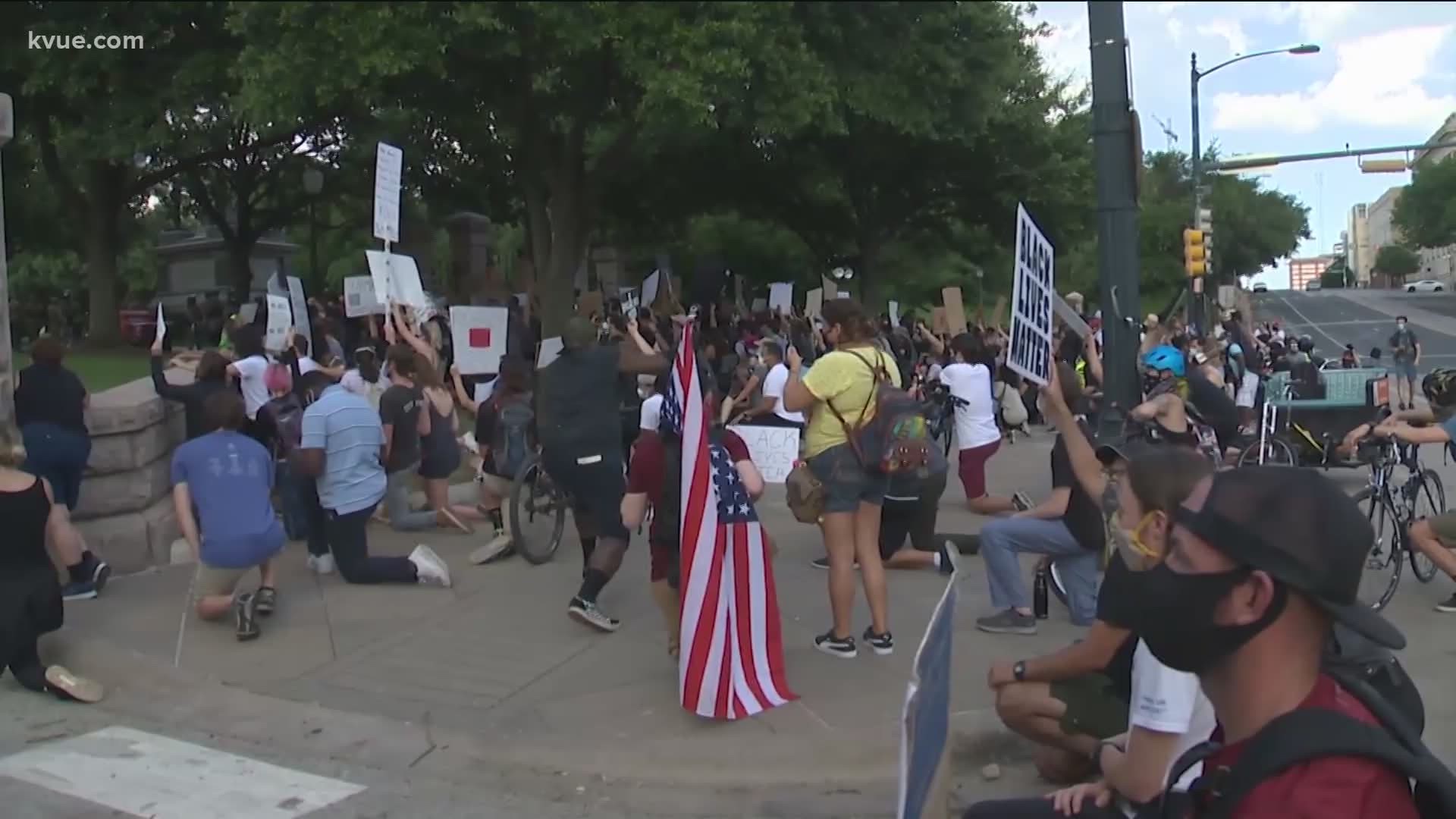AUSTIN, Texas — There's a long list of African Americans who've lost their lives suddenly and violently at the hands of a police officer. Just this year, George Floyd, Michael Ramos and Breonna Taylor's names were added.
Now in the wake of their deaths, demonstrations are happening across the country, as protesters gather in a ritual of anger and grief, young and old calling for meaningful change in our country.
"Police brutality is one of those issues that has existed since the beginning of the black freedom struggle. This is a direct way they can address the systemic racism they've experienced in their neighborhoods," said Tasha Philpot, Ph.D.
The government professor at the University of Texas said a massive outcry like this has been a long time coming, and now it's here – in large part because of social media.
"The availability of the images of black bodies dying has taken a serious toll on the mental health African Americans," Dr. Philpot said. "The spectacle of black bodies dying goes back to lynching when postcards were sent as a commemorative way to document the killing of the black bodies, and the continual spectacle of this is just weighing heavily on the psyches of African Americans."
Protesters are rallying for a change in how law enforcement responds to everyday situations, and during protests. Having all police departments practice de-escalation and requiring other officers to intervene if one is using excessive force are just a few of their demands.
"This is an ongoing discussion of what it's going to take for African Americans to be equally protected under the law," Dr. Philpot said.
RELATED:
But she added protesters' pain is about more than police brutality, because longtime barriers to economic and educational advancement also come into play.
The most recent census population survey shows when it comes to median household income, African Americans report making about $10,000 less than Hispanics and are tens of thousands of dollars behind whites.
"All of the economic and educational disparities that we see today are a result of a conscientious effort to enforce policies to not just create but exacerbate those disparities. We're talking about things going as far back as red-lining, the right to vote, both du jour and de facto school segregation," Dr. Philpot said. "Even though a lot of those laws were implemented decades or even centuries ago, they still have ramifications for educational disparities but also health and wealth disparities as well."
Dr. Philpot hopes peaceful demonstrations can bring about the change so many Americans say is desperately needed, helping to heal communities and the country.
PEOPLE ARE ALSO READING:

